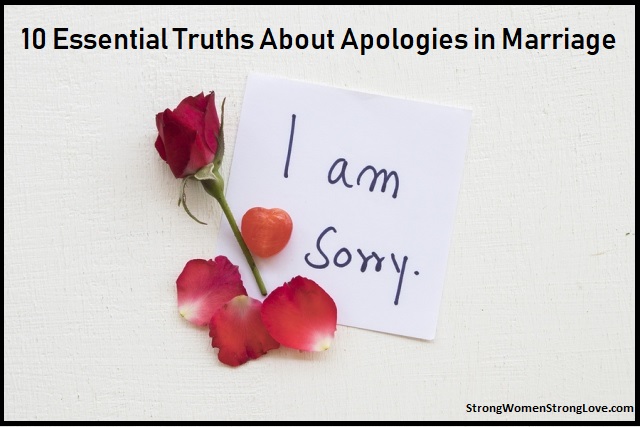by Strong Women Strong Love | Oct 31, 2018 | Personal Power |

Does your husband roll his eyes when you mention particular friends of yours? Does he try to get out of activities where he knows they’ll be present? This might not seem like a big deal, but it could turn into a trouble spot in your marriage.
Researchers have found that conflicts over friends can raise the risk of divorce, especially when a husband does not like his wife’s friends.
So what are you supposed to do with this information? After all, you love both your husband and your friends.
Let’s get one thing out of the way first. You need friends! Having a variety of nurturing relationships makes your marriage stronger. If your husband doesn’t like you spending any time with friends, there’s a deeper problem.
Assuming, though, that his animosity seems limited to a certain friend or friends of yours, let’s take a closer look at what might be going on.
Does He Not Get Your Friendships?
First, if you know he has issues with a friend of yours, don’t let his dislike of your friend become the “elephant in the room.” Try to create a space to talk openly about what’s happening. For example, maybe he worries that the just-divorced friend you’re hanging out with a lot is filling your head with ideas about leaving him. But, in reality, you and your friend actually spend most of your time talking about work or the kids.
Another possibility is that you have different ideas about friendship. Let’s say your husband’s family lives by the famous quote: “you are the average of the five people you spend the most time with.” Your family, on the other hand, emphasizes loyalty above else. So it makes sense that he’s not too happy you’re sticking by your aimless friend from high school. And it makes sense that you wouldn’t dream of distancing yourself from her even though she drives you a little nuts. When each of you understands where the other is coming from, you can find a way through the tension.
Is He Jealous?
Your husband might also be jealous of the bond you have with your friend(s). It’s a challenge for any of us to maintain a healthy support system amid all the demands on our time. But men are even more likely than women to rely on their partner to meet all of their emotional needs. Your husband may feel that your friends are crowding out couple time. In this case, it could be helpful to encourage him to build up his own friendships and pursue his own interests. You can also make sure the two of you are actually setting time aside to spend together on a regular basis.
Is He Right About Your Friends?
Finally, consider that your husband may be on to something. Does he dislike your friends because he’s noticed they drain all your energy and leave you irritable? Has he seen a pattern of your giving more than your friends? Do you and your friends say means things about your husbands under the guise of “teasing” or “venting”? That last question is especially important. Research has shown us that contempt is lethal to marriages. So you don’t want to do anything to cultivate it.
Everyone needs friends, but the way to balance friendships and marriage is unique to every couple. You can learn more about how both you and your husband can build and maintain a healthy support system in my book Strong Women, Strong Love.
by Strong Women Strong Love | Aug 2, 2018 | Persistent Pressures, Poisonous Patterns |

Your phone is probably never far from you. It keeps you connected to the office, to your kids, to what’s going on in the world. If you’re stressed, it’s there with a relaxing game or some cute puppy photos in your Instagram feed. It’s your partner in daily life — and that’s a problem.
As helpful as our phones are, technology can also be a source of tension in a relationship. According to one study, couples with high technology use reported more conflict and lower relationship satisfaction. The study even indicated that when one partner spends a lot of time using the phone, the other partner can feel more depressed. Another study echoes those findings. It concluded that people who describe their partners as dependent on their cell phones are less satisfied with their relationships.
Why do mobile phones have such a powerful effect? We can find the answer to this question in past research about what makes relationships succeed or fail.
It’s All About ‘Bids’
I’ve written many times in this blog about the work of John Gottman, who has extensively studied the behavior of married couples. One thing Dr. Gottman observed is that we all make “bids” for connection in our relationships. A bid is “any attempt from one partner to another for attention, affirmation, affection or any other positive connection.” When spouses respond to each other’s bids, they make deposits in the emotional bank account of their marriage. This is important, Gottman says, because successful couples have 20 positive deposits for every “withdrawal,” or negative interaction, in their relationship. If you and your husband regularly respond to each other’s bids for connection, you’re 88 percent more likely to stay married.
So where do our phones come in? As you’re probably all too aware, phones are powerful distractions. You don’t even have to be using your phone for it to steal your attention. When your focus is on your phone screen, you’re less aware of the world around you — and the people around you. That means you’re less likely to even notice your spouse’s bids, let alone respond to them. As a result, he may feel rejected, even if you didn’t intend to hurt his feelings.
How to Reclaim Your Relationship
If you’re worried that your phones are coming between you and your husband, what’s the solution? Admittedly, this isn’t an easy question. In just a couple of decades since they first became widely used, cell phones are now an inescapable part of life. But while you can’t get rid of your cell phone (and probably don’t even want to), you can change the way you relate to it so that it doesn’t detract from your marriage and other important relationships.
Above all, make it a priority to spend more time being truly present with each other. Now this doesn’t mean you have to book a two-week vacation at a remote beach resort without cell phone service. I’m talking about steps that are much more realistic. For example, put away phones when you and your husband reconnect with each other after work. Share a meal together while your phones are in the other room. Or when you are using your phone, take a moment to send a sweet note, rather than the grocery list. These may seem like little steps, but they can make a big difference in your marriage.
Finally, I want to leave you with an article from Thrive Global that really stayed with me. In it, psychotherapist Katherine Schafler cites the four questions that Maya Angelou believed we are unconsciously asking each other all the time:
- Do you see me?
- Do you care that I’m here?
- Am I enough for you, or do you need me to be better in some way?
- Can I tell that I’m special to you by the way that you look at me?
Angelou’s questions poignantly articulate an essential truth: We all need to be seen, to be affirmed, to be valued. We all need attention, reassurance and connection with each other. When you half-listen to your husband while you scroll through your Facebook feed, how are you answering these questions? And what are the answers you’re receiving from him if he’s checking headlines or email while you’re talking?
Don’t let the technology that keeps you plugged into the world rob you of true human connection. Always make connection a priority to keep your marriage strong. For more practical advice about maintaining your marriage amid our hectic, busy lives, check out my book Strong Women, Strong Love.
by Strong Women Strong Love | Apr 30, 2018 | Persistent Pressures, Poisonous Patterns |

Have you noticed how easy it is to spend your entire day under a cloud of negativity?
There is no shortage of upsetting headlines in the news. If you dare to read the online comments of news stories, the degree of negativity and rudeness can be mind boggling! Turn to your social media feeds and there are complaints and criticism everywhere.
Even at work, how many times a day do you and your colleagues “vent” about what’s wrong?
All that negativity takes its toll and can spill over into your marriage. It’s hard to turn off the habit of fault finding and looking for problems, even when you’re with people you care the most about.
Spouses can be especially easy targets for such negativity. But for the health of your marriage, it’s important to, as the old song says, accentuate the positive.
Here’s what can help:
1. Intentionally Build a Positive Space.
Your marriage can be a fortress of optimism that helps you cope with the sea of negativity around you. But building a marriage like this requires being deliberate and focused. It’s too easy to fall into negativity, so you have to repeatedly choose to be positive. If you can do this, you will find the upbeat nature of your relationship invaluable to your well being.
Marriage research reveals that couples with the strongest marriages have about 20 positive interactions for every negative one. Even when there is conflict in these marriages, the ratio is still five positives for every negative. For struggling marriages, on the other hand, the number is closer to 0.8 positives for every negative. Keep these numbers in mind if you want the type of marriage that will buffer you from outside pessimism.
2. Take Care of Yourself.
When you’re stressed and really busy, getting to that positive place isn’t easy. That’s because a stressed brain is hardwired to look for what’s wrong. Studies have shown that under heavy stress, couples have more difficulty seeing the positives in their relationship and usually magnify anything negative that is happening. This is just one important reason to take a break to mitigate your stress. When you’re calmer, you’ll be able to see your spouse more accurately. Take some time for you, so that your time together will be more constructive.
3. Notice the Good Things.
To counteract the strong tendency to focus on the negative, make an extra effort to notice what’s working well in your relationship and talk about it. Most people are starving to be noticed and appreciated, and your husband is no exception.
What are your best moments with him? Which of his qualities make you feel grateful you’re married to him? Have you told him any of this recently?
Pay special attention to the end of the day when the two of you reconnect. It’s easy to turn this crucial time into a gripe session. But think about how much better it would be if you shared some good news and expressed how glad you are to see each other instead.
You may not have any control over what happens in politics or national and world affairs, but you can take steps toward positivity that make a real difference in your marriage. Give the ideas in this article a try. And if you’d like to discover more strategies like these, pick up a copy of my book Strong Women, Strong Love.
by Strong Women Strong Love | Apr 1, 2018 | Books, Passionate Partnership |

In my last post, I talked about the importance of repair in your relationship. All couples go through conflicts, misunderstandings, and hurt feelings, and it’s very important to resolve them.
One of the tools you need in your relationship repair kit is the ability to give and accept an apology. Apologies are so important that renowned psychologist and relationship expert Harriet Lerner devoted an entire book to the subject: Why Won’t You Apologize? Healing Big Betrayals and Everyday Hurts. This book is required reading for strengthening your marriage, not to mention all the other relationships in your life.
Adapted from Lerner’s work, here are 10 essential things you should know about apologies:
- Apologizing well requires listening deeply to the person you hurt. Your apology should begin by fully understanding their feelings and experience, no matter how difficult they are for you to hear.
- A good apology also requires taking responsibility. A hurt person wants you to carry some of the pain of the situation with him. She also needs assurances that the same situation won’t happen again.
- A bad apology can make things worse than no apology at all.
- Common mistakes people make when apologizing include: making excuses, over-explaining, blaming the other person for your mistake, and bringing up things the other person did wrong in the past.
- A consistent failure to apologize harms a relationship, even if things are otherwise good. When both partners have the ability to apologize, the relationship is stronger and healthier.
- An apology doesn’t have to be the last word on a situation. Think of it as opening the door to future communication.
- In situations where the hurt runs very deep, an apology isn’t a one-time event. At these times, you must commit to ongoing listening and repair of your relationship.
- Apologizing when you’ve caused deep harm requires a strong sense of your own self-worth. Without it, you’re more likely to be defensive by doing things like minimizing, rationalizing and denying the pain you have caused.
- If your partner fails to apologize to you, that’s typically an indication of his low self-worth, not that he doesn’t love you.
- You don’t have to rush to forgiveness after an apology. In fact, doing so can cut short your healing process. Forgiveness also doesn’t have to be total for your relationship to move past the issue.
I encourage you to be quick to offer sincere apologies to your husband. Also, be receptive to his sincere efforts to make amends. If either partner’s failure to apologize is a trouble spot in your marriage, make it a priority to explore Lerner’s work together.
by Strong Women Strong Love | Mar 18, 2018 | Poisonous Patterns |

All relationships are different. But I can tell you one thing for certain about yours: Both you and your husband have messed up at one time or another. And both of you will again.
That doesn’t mean your marriage is bad. It just means that you are two human beings in a relationship. The important thing is what happens after you’ve messed up.
Choose the Right Tools
You might remember that we’ve talked before about the work of the Gottman Institute. From his studies of married couples, Dr. John Gottman identified behaviors that separate the Masters of Marriage (couples who have been married for a long time and still like each other) and the Disasters of Marriage (those headed for divorce).
Gottman discovered that one of the most important qualities of a strong couple is the ability to address and recover from conflicts, hurts and mistakes. Gottman calls this process repair. And a repair attempt is “any statement or action – silly or otherwise – that prevents negativity from escalating out of control.”
A meaningful apology is one of the most valuable tools in your relationship repair kit. But it’s not the only one. Other examples of repair attempts include:
- Asking to start a conversation over if it seems like the two of you aren’t hearing each other.
- Suggesting taking a break so you can both get to a calmer place.
- Being physically affectionate or reassuring.
- Using humor or trying to lighten things up.
The best repair attempt to use with your partner — or for him to use with you — depends on your individual needs. Maybe, for example, physical affection instantly starts repairing a conflict for you, but it feels too emotionally intense for him until you both get a calmer place. The Gottman Institute has a repair checklist that I recommend talking about together before the next time the two of you need to practice relationship repair. The list will help each of you understand which repair attempts the other responds to.
Maintenance Is Important Too
Making effective repair attempts is only part of the equation, though. The real measure of how well you can navigate trouble spots in your relationship is how receptive you are to connecting with each other on a regular basis. Gottman has found that the Masters are responsive to their partner’s attempts to communicate or connect about 86% of the time, while the Disasters group only responds about 33% of the time! If the door to connecting is closed most of the time, it’s even harder to open when you are having trouble.
It is critical to pay attention to the overall emotional climate of the marriage. I’ve written before about why regular maintenance is essential for your marriage, and this is one more reason. When the two of you are regularly kind, respectful and appreciative with each other, it makes sense that you’ll be more open to repairing your relationship when things go awry.
To sum it all up, here’s a quick “maintenance and repair guide” for your marriage.
- Establish a strong foundation by having positive interactions with each other daily.
- Understand the repair attempts that you and your husband respond to.
- Be generous in making repair attempts when you hit a trouble spot.
- And be generous in accepting your husband’s repair attempts.
In my next blog article, we’ll continue to build your skills in healing both small and large rifts in your marriage. I’ll go into more depth on making, and accepting, apologies. In the meantime, you can get more strategies for building a marriage that can withstand conflicts in my book Strong Women, Strong Love.






